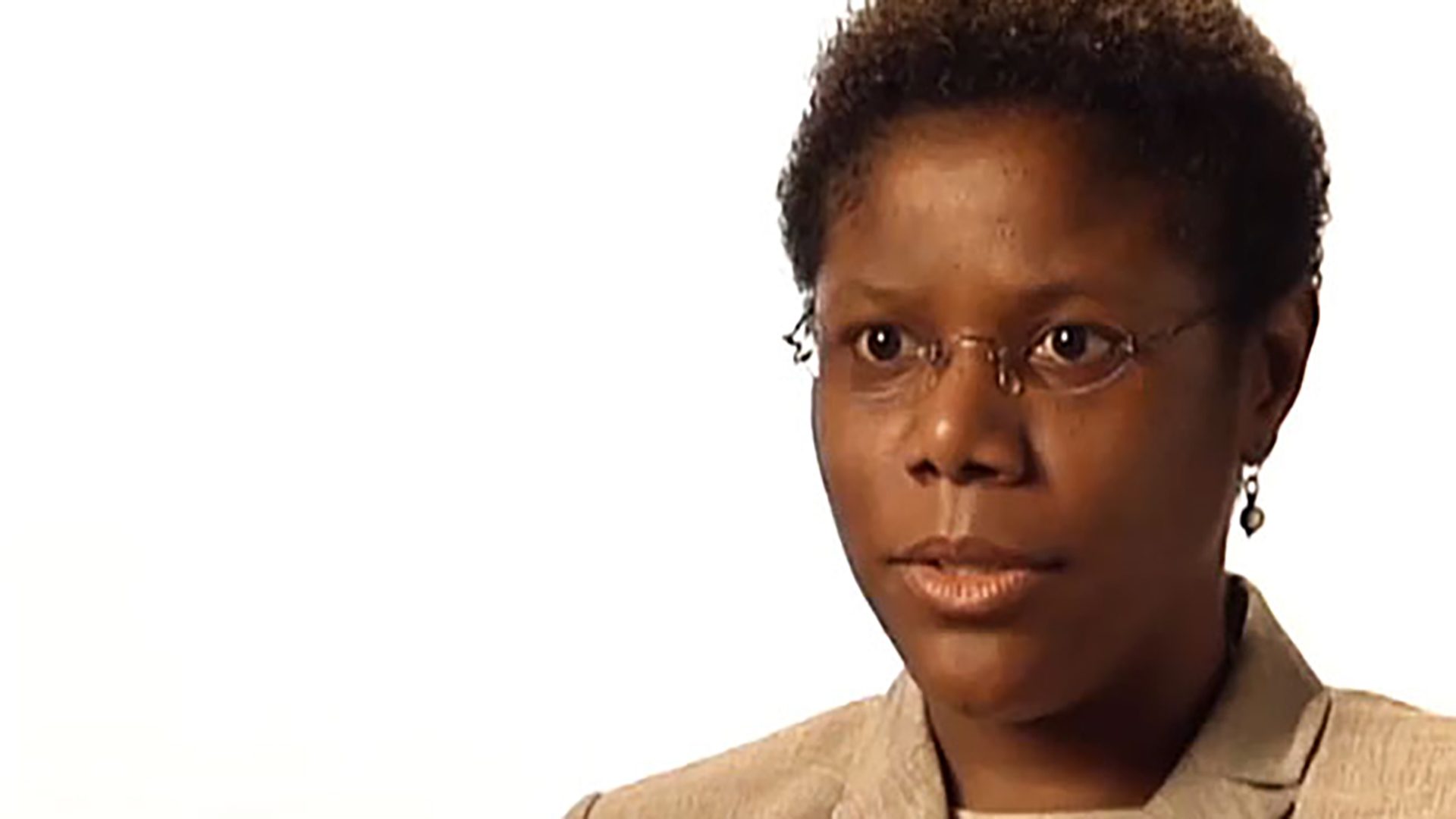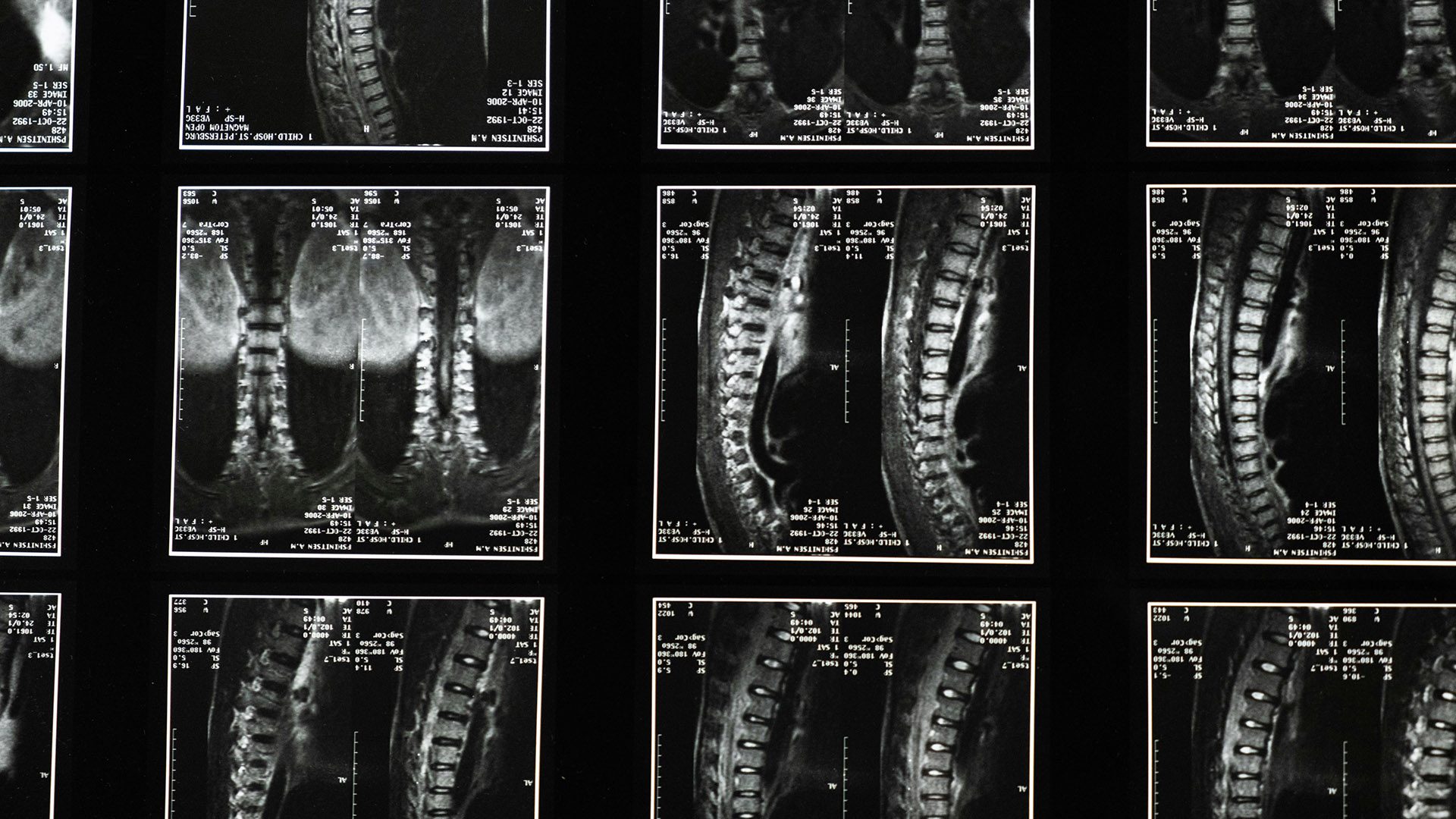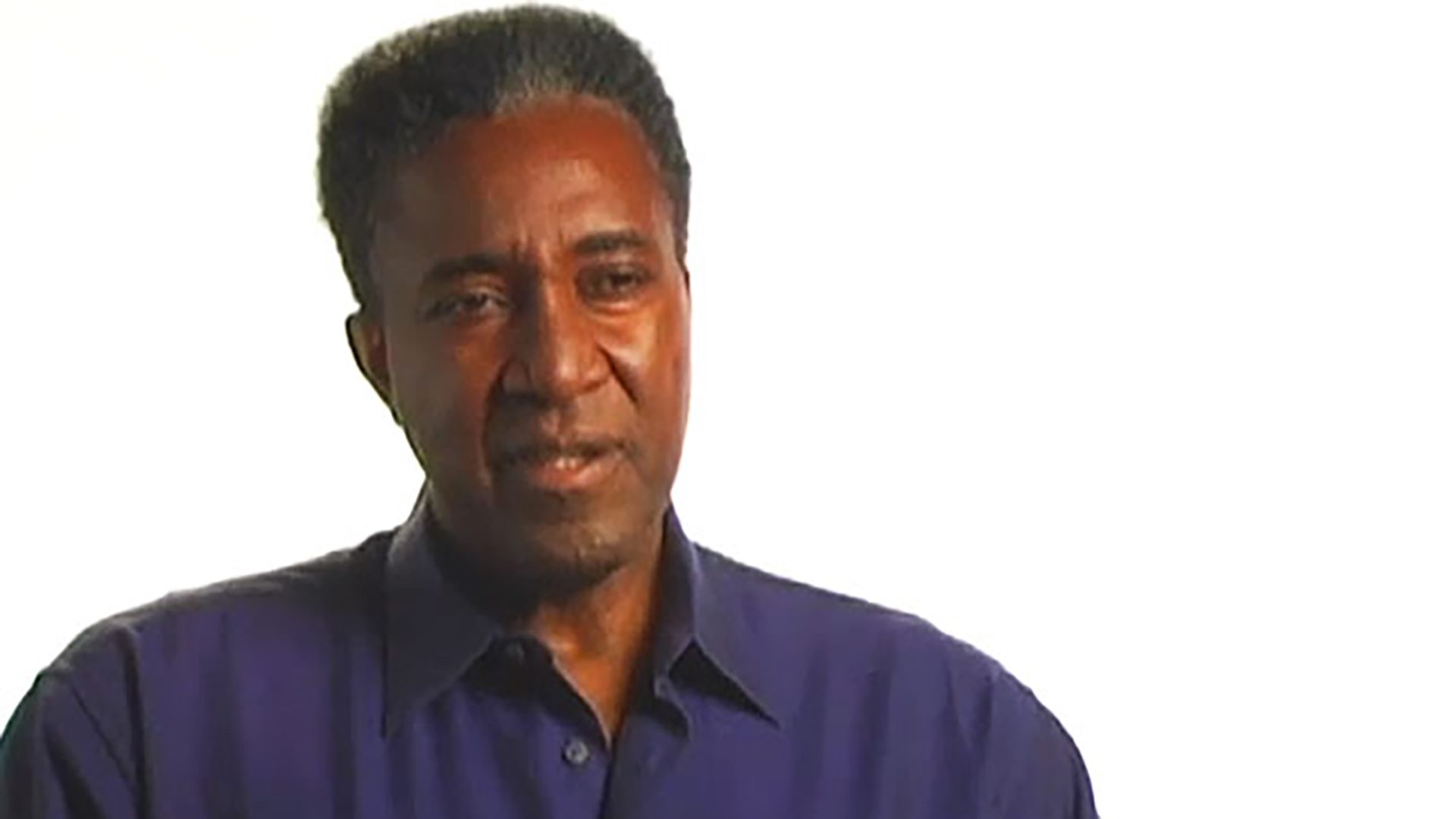Survivor Interview – Magnolia C.
Magnolia is a breast cancer survivor. She talks about aftereffects of chemotherapy treatment, accessing quality care, and dating.

I remember having arrived from a business trip, and I woke up the next morning with a pain under my arm. I walked into my office and asked a colleague, “What is that myth around having something under your arm? If it hurts, it’s not breast cancer, and if it doesn’t hurt, it’s breast cancer?” She said, “I don’t care about that whole myth. You need to go and get it checked.” Next thing I know, my life is all cancer, all the time.
I had six months of horrible chemotherapy, lost my hair, lost weight, couldn’t eat, couldn’t sleep, hot flashes. Then I had radiation therapy on a daily basis for another six to eight weeks. That was horrible, too.
It’s been a year since I finished chemotherapy. I think I started to feel better maybe six weeks ago. I was surprised that I had a lot of lingering symptoms that just wouldn’t go away. The hot flashes are gone now, but they were intense. I just got my first menstruation last month. I have still a little bit of neuropathy, primarily in my toes. I am sleeping much better. I wasn’t sleeping at all six weeks ago. I think that I am much more mindful when my body’s tired to just go to bed.
The cancer brain symptom was huge for me. Chemo brain. Oh my God! I couldn’t remember from one thing to the next. It’s better now, but certainly Alzheimer moments were very intense. It had a bit of an effect on my work, just because I couldn’t express myself. What was I saying? And, what did I say? I just couldn’t pull out the words. But that’s gotten better.
I think that, physically, I’m still in that place of always checking to make sure that I’m okay; and emotionally, up and down. Some days are good. Some days I think, “Oh, shit, this still can be building in my body.”
I had very little risk factors. Didn’t smoke, didn’t do the traditional things one thinks about, in terms of being in a risk population. The idea that now I can exercise and eat better and all those things, they’re gonna make a difference? I didn’t do anything to get this. What really do I have to change to prevent it from happening again? I think if it comes back, it’ll come back, because it’s just gonna do whatever it wants. I feel that kind of anger, defiance, continuing-with-my-life kind of feelings.
All these things about being initiated into this new world, I’m kind of pissed about! I’m pissed about having to forever worry about my physical health. As a single woman, I have an incredible level of support: my parents, my family and friends. But if I ever have to stop working, it becomes like, “Oh, shit, I am responsible for my own life and my own care.” It’s meaningful if I’m thinking about changing work. It’s meaningful if I’m thinking about not working. Health insurance becomes important. It’s primary if I want to have children. It’s primary if I don’t want to have children. It’s this weird variable that now has become primary as opposed to other things I think would be more of a concern.
Before, because I’m still young, I would immediately go from one job to the next. Now I don’t have that level of freedom, because I have to be so mindful about what I need, about caring and having resources to support myself. That’s a big one, where I think traditional older women who have families and husbands have had time to have a lot of money in the bank. Not so concrete “money in the bank,” but more support and access to support than a single 30-something-year-old.
One of the things that I did a long time ago was to get life insurance, only by coincidence. Now I thank the fact that I kept it up. In terms of health insurance, it’s important for me to be aware that whatever carrier I’m on provide the appropriate level of coverage for my needs. That I’m not excluded because of my history or that they don’t perceive me to be in a high-risk group, so my premiums will be higher. It’s all that level of detail now, I am increasingly mindful of. Financially taking care of what I need to, so I can put more money in the bank. If I ever have another breast cancer diagnosis, I know I can take time off work. Do I buy a house? Do I not buy a house? It’s all of those types of issues that certainly affect how one continues to plan for the future. Do I even plan? How long of a future? Can I sign that 30-year mortgage?
I did really well during my treatments from a standpoint of having support, having friends, having a good job that worked with me and my illness. I’m single, so all I had to do was worry about myself. I didn’t have to worry about coming home and cooking or taking care of children or other people. I was completely self-absorbed, and I think that allowed me to contribute to getting better and to contribute to this idea of, “This doesn’t have to stop me.” It was a huge bump on the road, but it wasn’t paralysis. I don’t feel like this is gonna stop the way I’m living today, but it is having an effect in how I move forward. The future and the road of getting to that future look very different than two years ago. I can do the day-to-day stuff. I have more long-term anxiety and pressure.
I knew exactly what I needed to have in terms of my medical treatment, in terms of the kind of providers that I needed. I was very, very careful at choosing my doctors and where I went for treatment. The same goes for my follow-up care. I have chosen the group of people who I feel have my best interests in the long term. They’re not my friends. They are the professionals who I feel will help decrease my chances of having a recurrent cancer. That’s the area of control that I know I have, in terms of accessing quality care and doing my part to ensure that I get that.
I didn’t do groups while I was in treatment. I felt not emotionally ready to hear someone going through a more horrible experience. I need to accept the space I’m in before I go and try to address it.
I’m open about having had breast cancer. I sometimes get surprised at some of the things that come out of my mouth, because it’s like that was an inside voice statement. I’m not quite ready to figure out yet if this is part of the process or if it is a problem that requires therapy, talking, or whatever. I’ll know. I think it’s phase-appropriate, time-appropriate for where I am to have all those kinds of thoughts.
I haven’t ventured into dating. Partly because of the self-absorbing kind of focus. Second, only now am I beginning to go, “Oh, that’s a cute guy. Guess what? I’m interested in guys. This is good!” Chemo does something to all of those feelings and emotions. I have no idea what it’s gonna be like to meet somebody for the first time and go through the process of being in a relationship. When do you talk about this? Before or after? During? First meeting or second meeting? I have no idea. I’m happy that my hormones are coming back, but I haven’t had the pleasure yet of putting them into practice. That’ll come. Anxiety about it? Absolutely.
If my future is such a concern for me, I can imagine somebody else to have all those questions about how it would impact their life. If somebody wants to have kids, that’s not a sure thing with me now. If we do have kids, am I gonna live to see them graduate from high school? That’s not a sure thing either. I can assume and I can bet that it’ll happen, but I also have a big chunk of question mark and happily will engage in a relationship with someone that can tolerate those two things.
I don’t think survivorship has the same meaning for me as it does for other people. I know how some people wear the term as a badge of honor to convey a sense of, “I’ve been through something really horrible and I beat it.” How I relate to other breast cancer survivors is sisterhood. The shared experience of having gone through something as horrible as this bonds us together. I believe that one doesn’t have a choice. I think you have to survive. I think you have to make it through, if not for yourself, for people who love you or for others.
My name is Magnolia Contreras, and I am a two-year breast cancer survivor.

